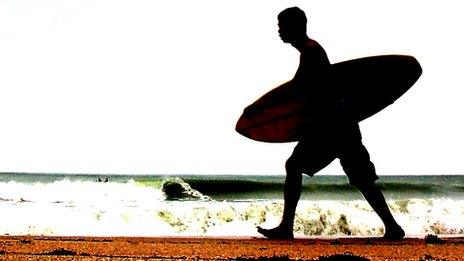Surfing improves wellbeing of brain injury survivors
- Published
Survivors of brain injuries and strokes go surfing as part of their therapy
A group of brain injury survivors have said taking up surfing as part of their recovery has helped change their lives.
The group who live with strokes and brain injuries said surfing gave them a "valid reason for being alive".
They were taking part in research with scientists from Swansea University along with psychologists and surf instructors.
It is hoped the research could encourage health boards to make nature-based therapy part of their treatment.
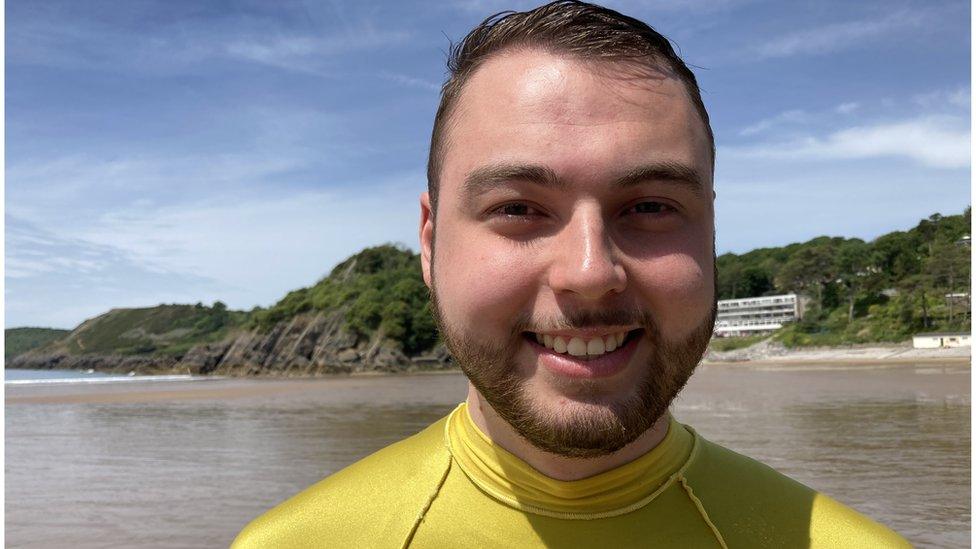
Iwan Jones said surfing has been life-changing for him and he plans to continue doing it
Iwan Jones, 21, developed a sudden illness aged 14, which turned out to be encephalitis - an inflammation of the brain.
He said: "It left me unbalanced, unable to walk, gave me bad fatigue and headaches."
Growing up near Llanelli, Carmarthenshire, many of Iwan's friends surfed, but he thought of it as something he would never be able to do.
When Iwan told friends he would have the chance to surf, he said some laughed at the thought of him on a surfboard.
After five sessions, Iwan said the term "life-changing is an understatement" and he would continue to surf.
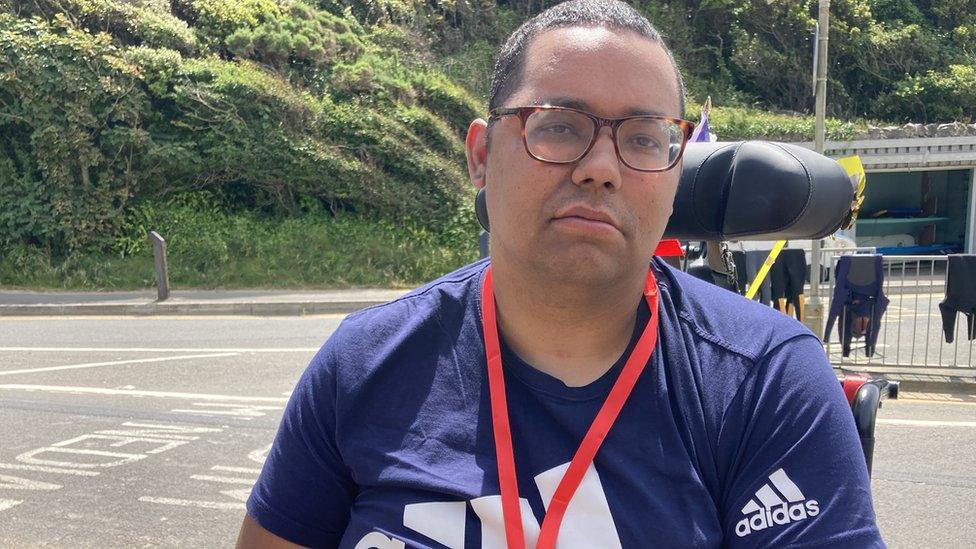
Ashley said he felt like he was gliding as he was helped to surf
Ashley Baxter, 33, has hemiplegia following a stroke, and said the sessions made him feel "totally free".
He said: "My left arm doesn't work, my left leg doesn't work, it's a right pain because you feel like your arm and leg are still there, but you can't do anything with them."
A team from Surfability UK, an adapted and inclusive surf school based in Caswell Bay, Swansea, use an adapted surfboard to help Ashley into the water.
Pushing off into the waves with the help of the team, Ashley said "it felt like you were driving on ice - you are just gliding".
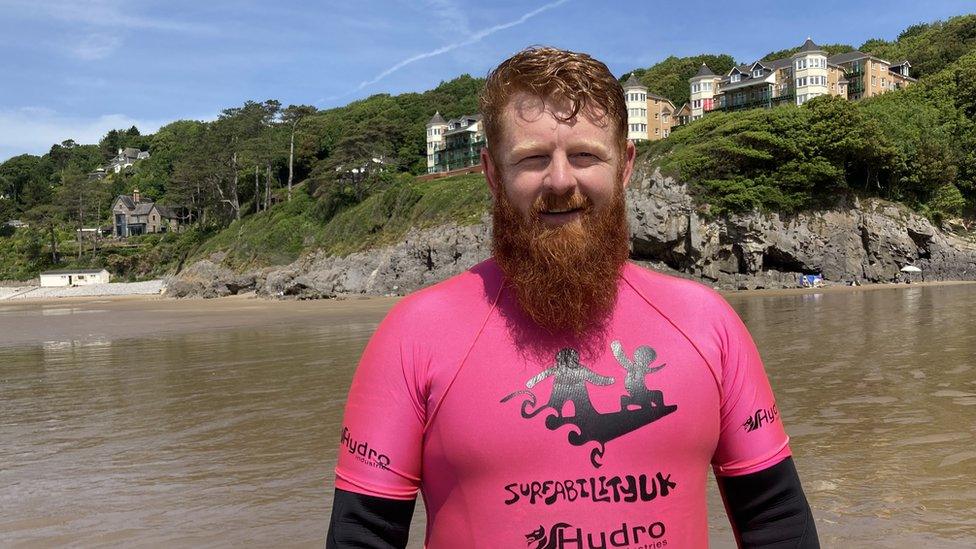
Dave said when he was first invited to take part he was not interested as he was a "petrol head"
Dave Jones, 41, started sessions with Surfability UK in 2018, and he is now a mentor who has supported Iwan and Ashley over the course of the study.
Dave, a keen motorcyclist, said his life was "taken away" when he had a stroke in 2017 and he could not see the appeal when he was first invited to take part in the sessions.
But when he got to experience surfing, he said it was the closest thing he had found to acceleration on a bike.
"It was euphoric, it meant everything - and I got a chance to feel normal," he said.
For Dave, being a mentor is a chance to see others like him "go from their dark times to seeing some normality".
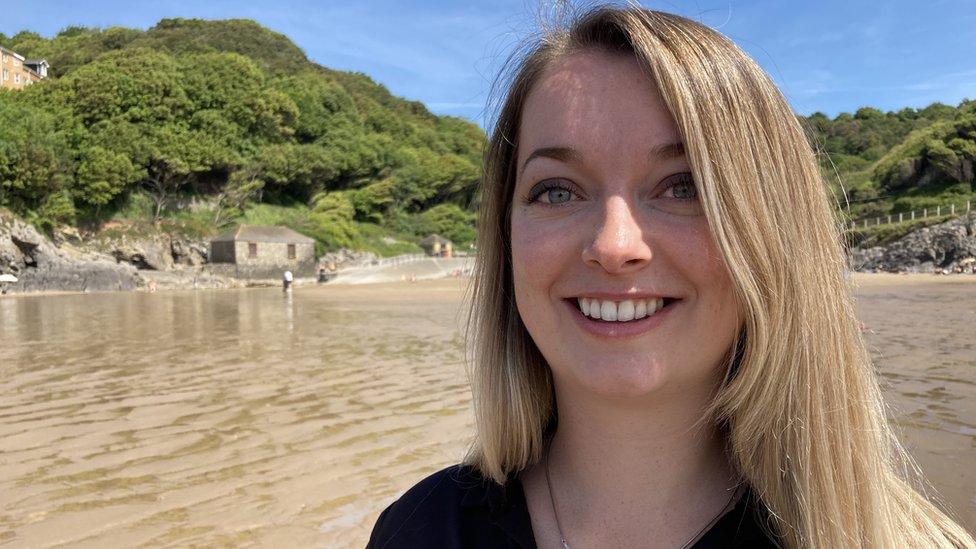
Lead researcher Katie Gibbs found the combination of people with brain injuries accessing the natural environment and trying out a new skill helped increase their wellbeing
Katie Gibbs, a researcher at Swansea University's School of Psychology led the study and interviewed 15 adults with acquired brain injury following the five-week surfing intervention.
She said her team found the sessions helped participants realise that "despite being a little broken in some places, people with stroke and brain injury were still capable of experiencing and achieving wellbeing".
The combination of accessing their natural environments and trying out a new skill allowed the group to build confidence.
Each participant was supported by a clinical psychologist, like Dr Abi Barker-Smith.
That support ranged from "helping someone plan to get to the session" and "helping with their fatigue in the moment" to "therapeutic conversations when someone's struggling".
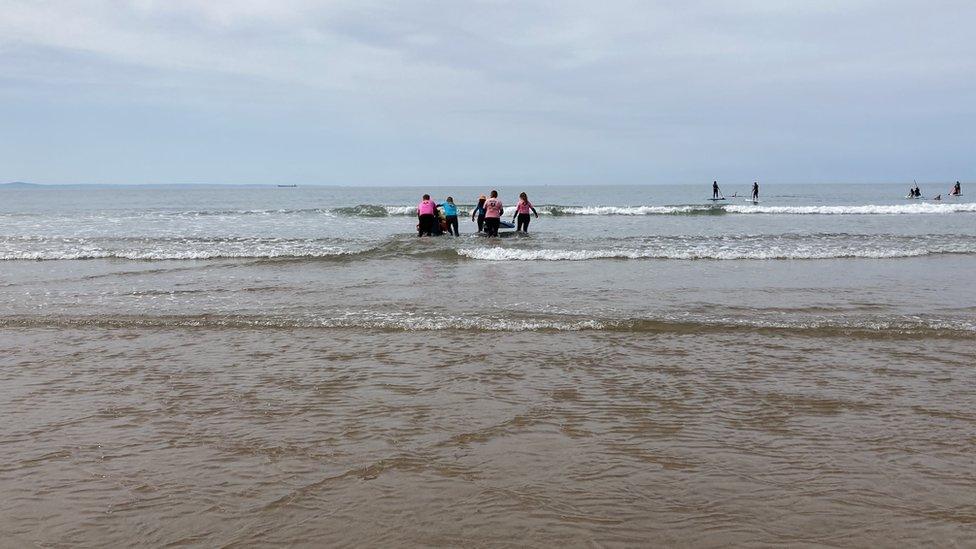
The research found that being a part of a group who shared similar experiences gave the participants a sense of belonging
For Dr Barker-Smith, the intervention was "all about focusing on their strengths".
She said after brain injury, people experience huge life changes, "they might not be able to return to work, there's a relationship breakdown".
But in the surfing sessions, participants found their confidence was renewed and being part of a group who shared similar experiences also gave them a sense of belonging and support.
Ms Gibbs and the team hope that the results of this study will encourage public health boards across Wales to continue to research nature-based interventions for those who have experienced strokes and brain injuries.
- Published22 April 2022
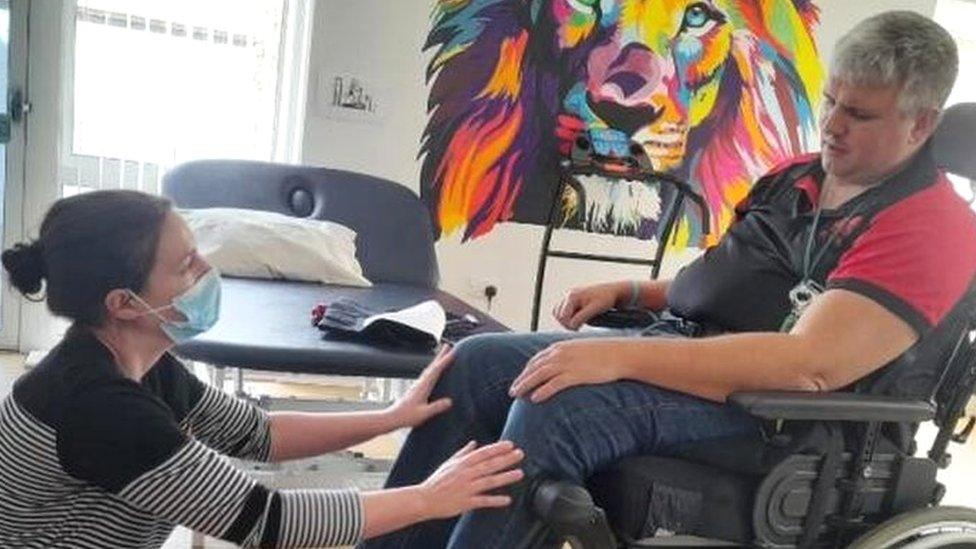
- Published22 April 2022
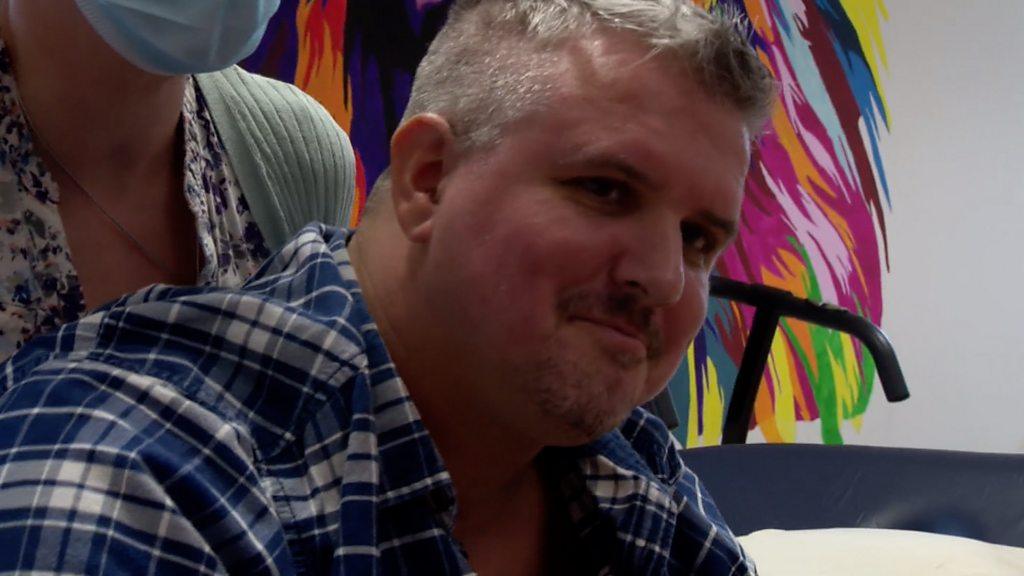
- Published6 April 2022
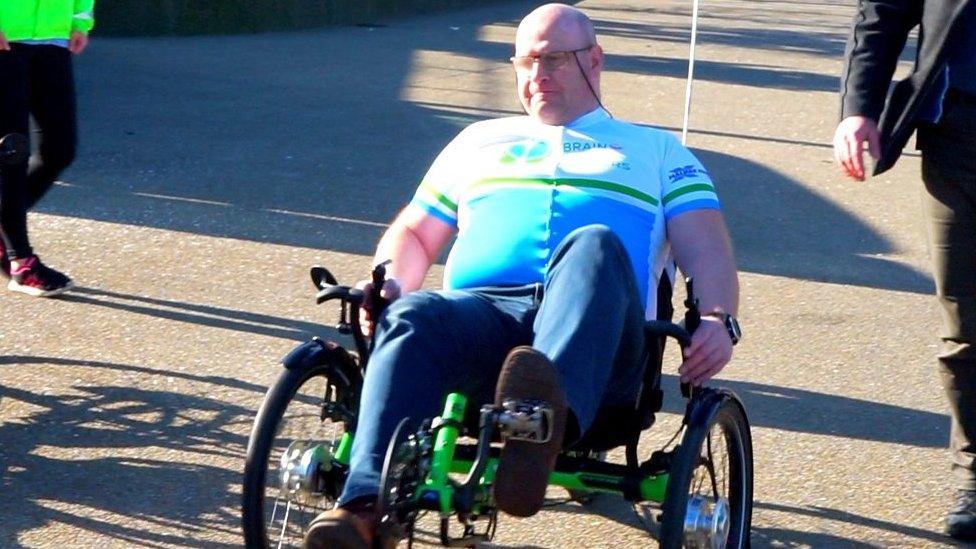
- Published8 May 2017
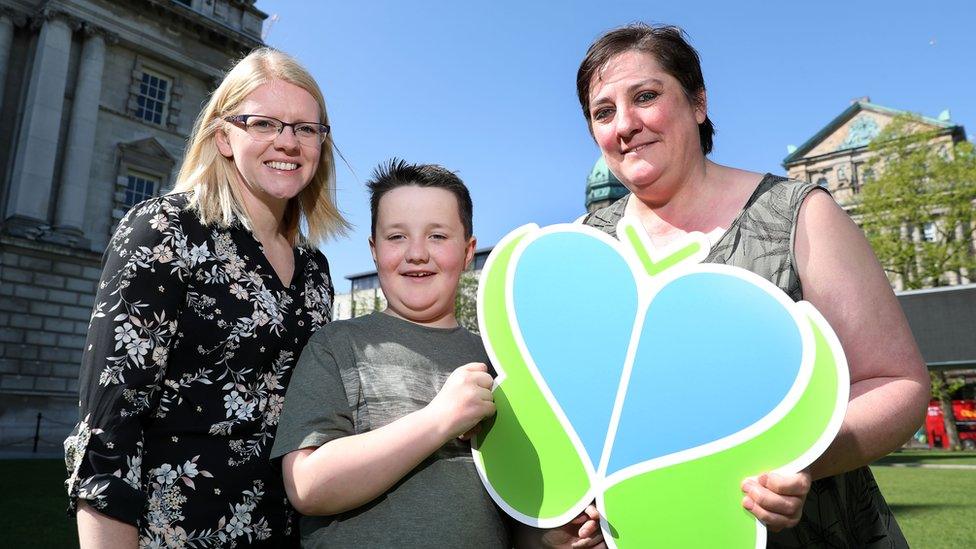
- Published14 September 2013
